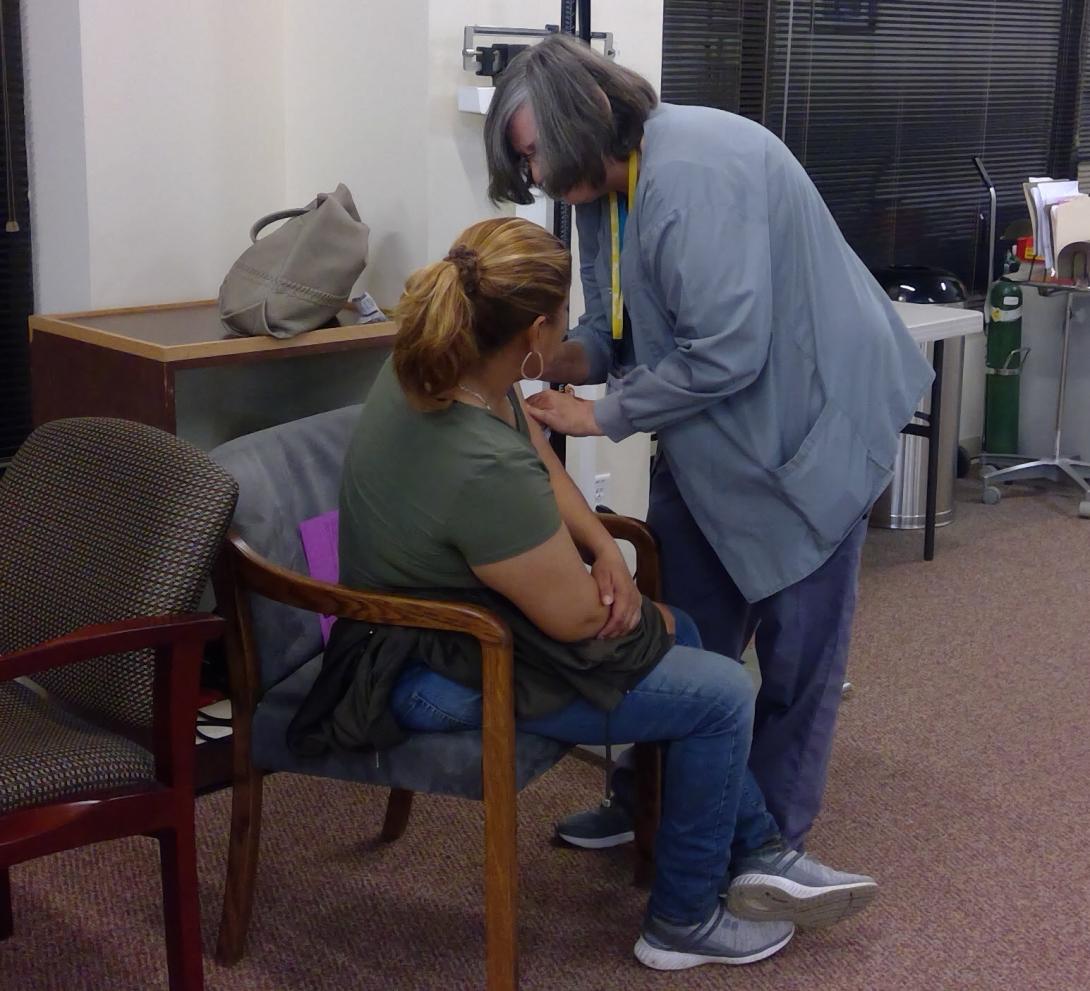
Legacy Health is helping to protect those experiencing homelessness by donating flu and hepatitis A vaccines to several local organizations that serve vulnerable populations.
“For the last several years, we’ve donated flu vaccine to community-based organizations that serve homeless people,” says Bryan Goodin, Employee Health manager, Legacy Health. “Avoiding the flu is a health challenge for people living in crowded areas, especially those with chronic illnesses like diabetes or asthma. A flu shot is a way to work upstream and protect everyone in our community.”
Legacy is adding donations of hepatitis A due to a rise in outbreaks in homeless communities along the West Coast. “Public health officials have identified this as an area needing early intervention to prevent further spread,” says Goodin.”
Legacy Health is donating flu and hepatitis A vaccine to these organizations:
- Borland Free Clinic in Tualatin
- Bridges Collaborative Care Clinic
- Operation Nightwatch Clinic
- The Blanchet House
- Project Access Now
- Portland Street Medicine
- Salvation Army
- Portland Street Clinic
Borland Free Clinic Executive Director Sandy Kosik says they primarily focus on prevention for the people they serve in Washington and Clackamas counties. “The vaccines Legacy Health provides helps us protect our patients from getting common communicable diseases that would be harmful to their health.”
The flu is a viral infection that attacks the respiratory system and is the eighth leading cause of death in the United States. Every year, approximately 200,000 Americans are hospitalized, and an average of 36,000 die from flu-related complications. Last year, over 1,300 people in the Portland area were hospitalized with the flu. Hepatitis A is a viral liver disease that can cause mild to severe illness. The vaccine reduces the chances of outbreaks, which are spread through person-to-person contact, contaminated food and water.